How cooking and cleaning transformed a violent man
- Published
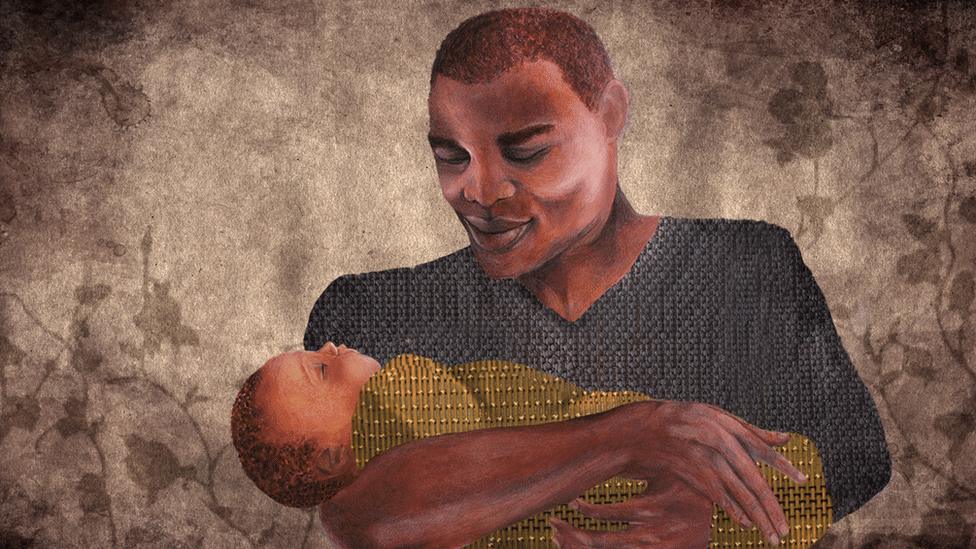
Jean Pierre, 32, lives in Mwulire in Eastern Province in Rwanda
A grassroots intervention programme is trying to reduce domestic violence in Rwanda by teaching men how to do household chores, and a recent study has suggested it is having a positive effect on communities.
Muhoza Jean Pierre used to beat his wife.
He saw her as someone he married to just have children and look after them.
"I was following the example of my father. My father would not do anything at home," he said.
"If ever I came home and found something not done yet, I would abuse her.
"I would call her lazy, tell her she was useless and should go back to her parents' house."
But then something changed - he learnt how to cook and clean.
It was all part of a grassroots intervention programme in his village in Mwulire in Eastern Province, Rwanda, which encouraged men to take on domestic roles, including childcare.
Jean Pierre says the project, known as 'Bandebereho', or role model in Kinyarwanda, helped transform his behaviour.
He took part in classes which covered everything from cooking and cleaning to discussions on how to challenge traditional gender roles.
"They would ask us if a man can sweep the house, and we would say 'he can'," he said.
"And then they would ask us: 'Who among you does that?' And there was no one."
'No real man should cook'
Facilitators from 'Bandebereho' taught Jean Pierre how to do tasks that he previously believed his wife should do.
He added: "We would go home and try to put this into practice.
"Then we would go back to training with witnesses who would testify that they had observed some changes in us.
"I know how to cook. I do laundry for the kids. I know how to peel plantains, I know how to pound dry cassava and sift the flour."
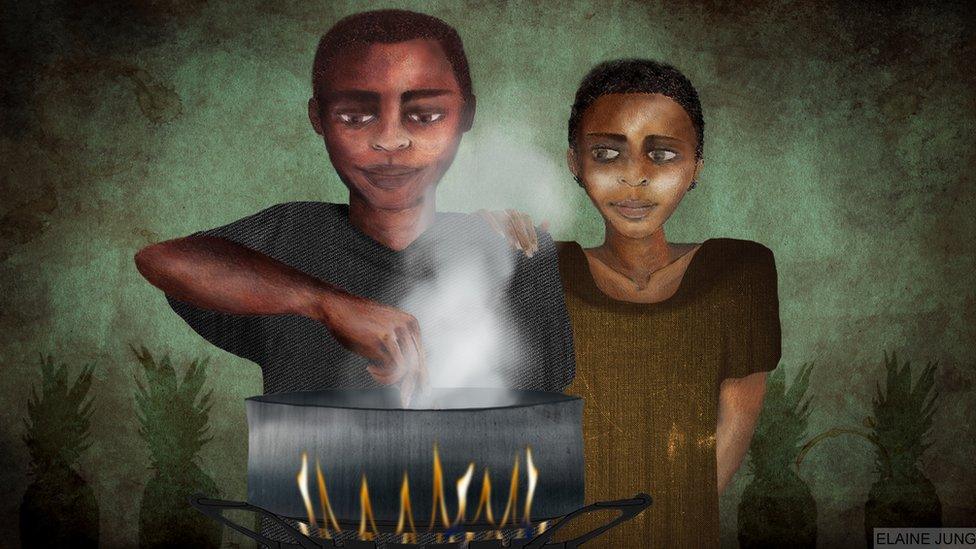
Jean Pierre and his wife have been married for 10 years
However, making the changes were not easy as Jean Pierre's friends discouraged him from doing household tasks, telling him: 'No real man should cook'.
"My family and friends started saying that my wife must have given me some drugs...[they] would tell me that no genuine man should carry a bundle of firewood in the street - that is for henpecked men," he said.
But Jean Pierre continued when he saw the benefits to his family.
He says his children feel closer to him and his wife now runs a banana business that has allowed them to improve their home.
"The way my wife treats me now is different from the way she used to treat me," he said.
"She used to treat me badly because I was mistreating her too, but now we discuss and agree on things to do.
"I have set her free, now she is working and I am working too; whereas before I was convinced she had to stay home and be available whenever I would need her."
Fear and freedom
Jean Pierre's wife Musabyimana Delphine says she used to have little freedom and lived in fear.
She said: "Sometimes I would feel like a mere worker, and then I would remember that a worker has a salary.
"I never thought a woman could ever have her own money, because I never even had time to think about any activity that could generate money.
"Now I have enough freedom in the house, I go out and work for money like everybody else."
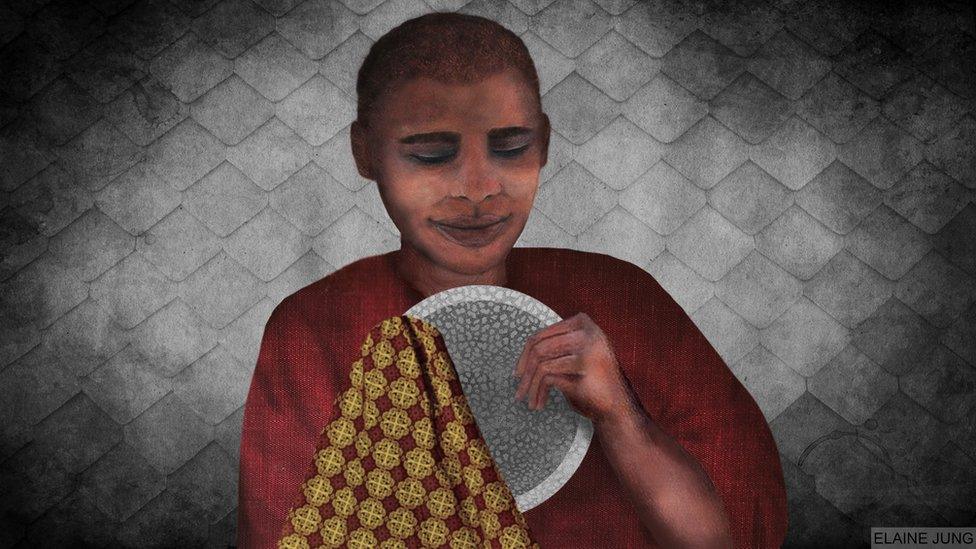
The 'Bandebereho' project taught Jean Pierre how to do tasks he previously believed his wife should do
Delphine leaves at 5am to sell plantains at a market, while Jean Pierre stays at home and takes care of their four young children.
"I come home relaxed and find food ready," she said.
The project's curriculum was originally developed in Latin America by the global fatherhood campaign MenCare, which believes true equality will only be reached when men take on 50% of the world's childcare and domestic work.
A study looking at couples taking part in the project, external found that two years after taking childcare lessons in Rwanda, men were less likely to use violence against their female partners that those who did not attend the classes.
But the study also suggested about one in three women whose partners took part in the programme still reported experiencing intimate partner violence.
According to the National Institute of Statistics of Rwanda, external, released in 2015, around 52% of men in the country said they had ever been violent towards their partner.
The Rwanda Men's Resource Centre, which delivered the programme in the country, now wants 'Bandebereho' to be more widely adopted by communities and the country's government.
Fidele Rutayisire, the chairman of the centre, said: "We still have negative social norms, negative masculinity perceptions, cultural barriers - those are the main factors of high violence against women in Rwanda.
"Traditionally men don't take care of children here. Men still have control on sex, on resources, on decision-making.
"When men are actively involved in childcare their attitude on gender changes positively, they understand the value of gender equality."
For Delphine and Jean Pierre, the programme has not only been beneficial for their family, but their whole community.
"We are now in our honeymoon, 10 years after our wedding," said Jean Pierre.
"When there is a conflict or a security issue in our neighbourhood our opinion is very respected because they see we do not have any problems in our household."


What is 100 Women?
BBC 100 Women names 100 influential and inspirational women around the world every year and shares their stories.
It's been a momentous year for women's rights around the globe, so in 2018 BBC 100 Women will reflect the trailblazing women who are using passion, indignation and anger to spark real change in the world around them.
Find us on Facebook, external, Instagram, external and Twitter, external and use #100Women
- Published25 November 2018

- Published26 November 2018
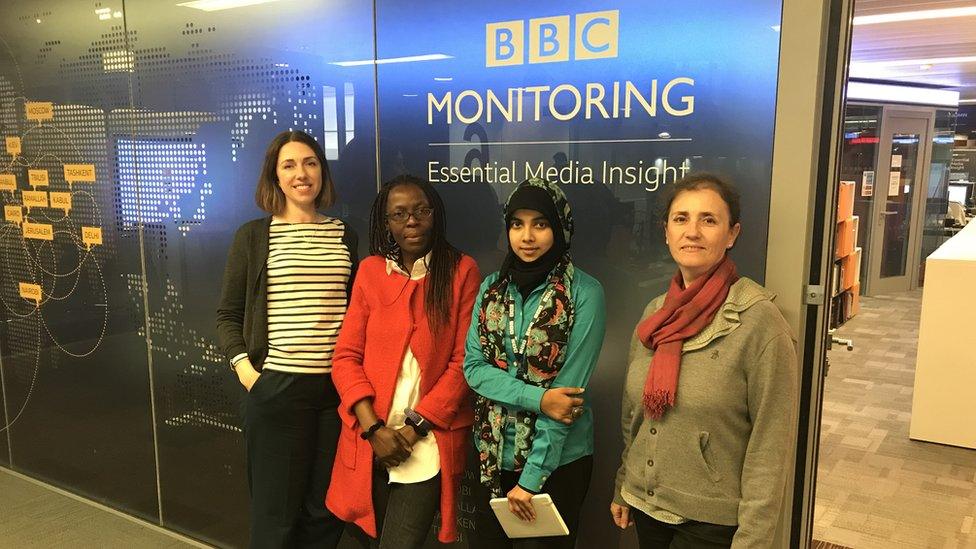
- Published8 October 2018
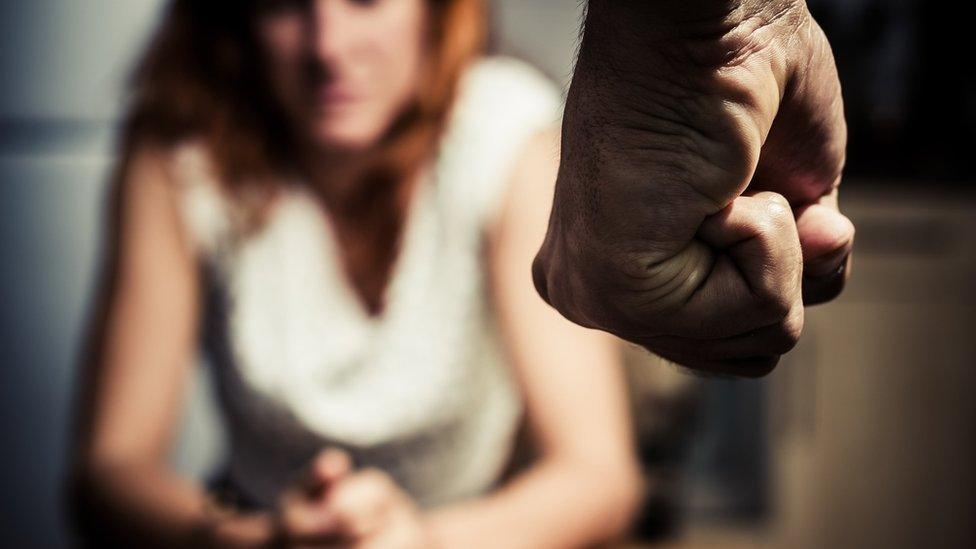
- Published10 April 2018
